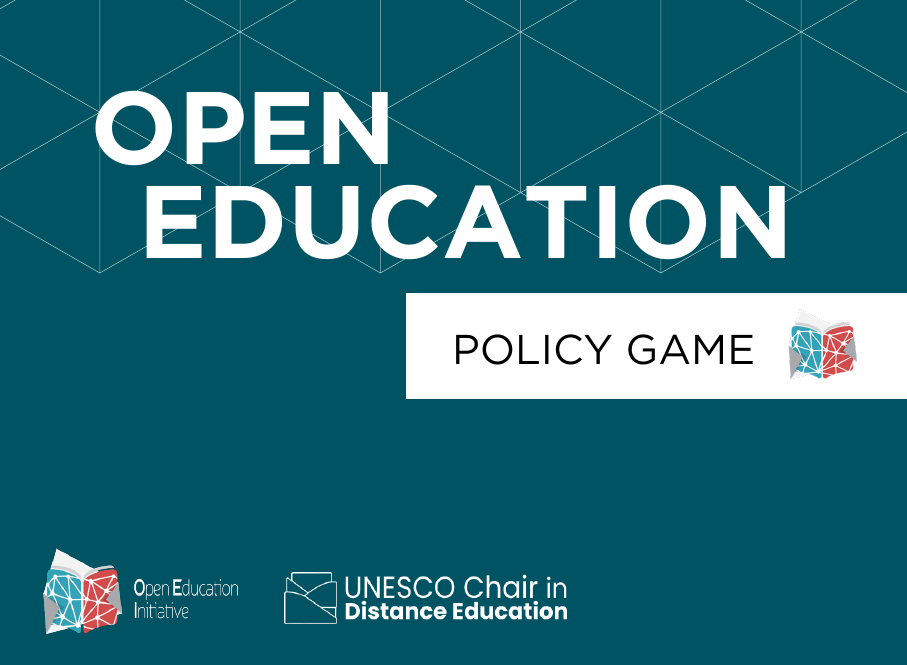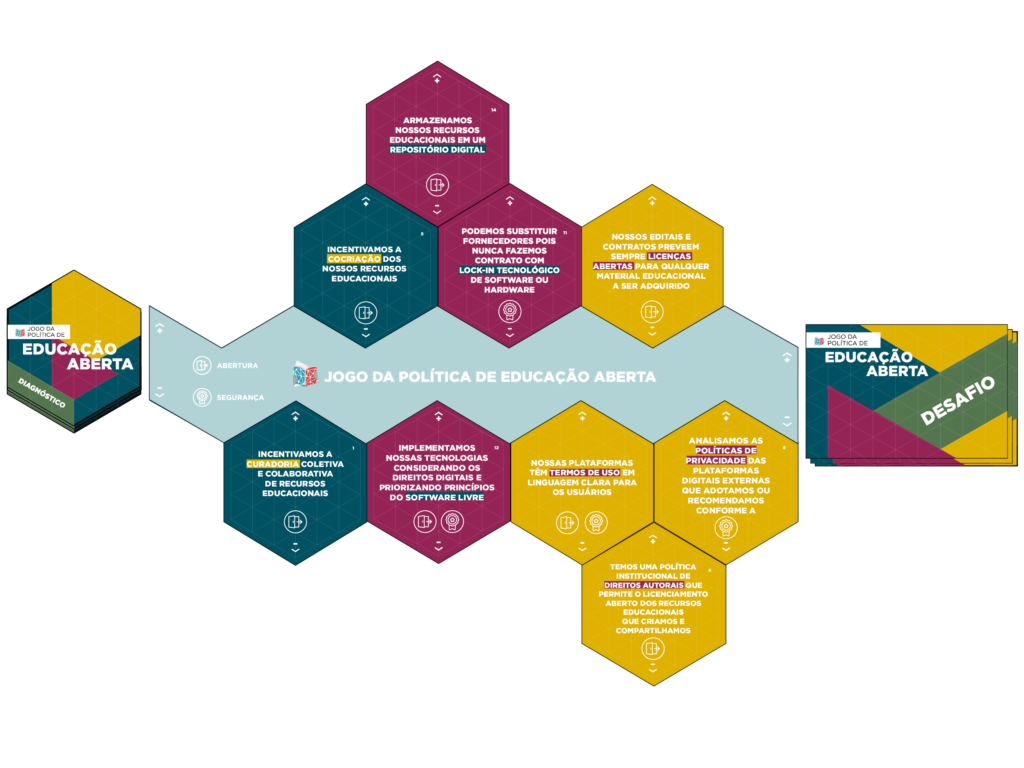new open education policy game
Since 2018, when it was created, the Open Education Policy Game has been a major social technology supporting collaborative analysis and implementation of open educational policies in institutions committed to the democratization of knowledge. Now with the support of the UNESCO Chair in Distance Education it is relaunched in 2024 in an updated version, providing a more comprehensive perspective in line with the UNESCO 2019 OER Recommendation, as well as a greater focus on open practices, collaboration, sustainability, shared governance, digital public goods and digital rights.
Developed by the Open Education Initiative, a research group at the University of Brasilia (UnB), the Game is a pioneering social technology, and was built with the collaboration of administrators, educators and technicians from public and private education throughout Brazil. The first version, already available in three languages (Portuguese, English and Spanish), was played in different education contexts in Brazil and in various countries including Argentina, Peru, Cuba, the United States, Serbia, Slovenia, Namibia and Tanzania; it has been well reviewed and has had very positive results providing an mechanism to grasp and grapple with basic concepts and the importance of participatory management in open policy-making. It was also adopted as a main resource for the ‘Open Education Leaders’ course supported by UNESCO Brazil in 2020-2021, which had 200 education professionals from different regions of the country as participants.


The complete material for the Open Education Policy Game is available under an open license, and includes a manual, board pieces, and cards to be played online or in person, in print.
To begin with, one must define an educational policy to be analyzed, and should invite a team composed of managers involved in three main areas: pedagogical, technical and legal-administrative. We recommend a minimum of 4 and a maximum of 8 players. The estimated time for a game is two hours.
The game was is do-it-yourself! You can download the layout of the cards, the board/base, and print them using (sticky) paper. Using thicker paper like card stock will help in the assembly. In order to keep score, you can use small items like buttons or other materials that you have available. Included is a comprehensive manual/guide on how the game should be played.
Throughout the game, a base/infographic is being formed as consensus takes place within the group. Whenever an underlined term appears, there are challenge cards so that players can better understand the concepts and definitions involved, thus earn open points.
Download the game in three languages (portuguese, english and spanish):
- Game manual
- Graphic with cards and base to print and built the game.
- Separate image of all cards and pieces so you can assemble an online presentation if you wish to play online
